#listen im not saying the books are bad theyre just not the top quality ive remembered them as being in the decade since i first read them
Text
Slowly rereading the vampire diaries series every time I travel and you know what? Maybe it wasn't ever good, maybe I was just 11
#TVD#vampire diaries books#i accidentally grabbed the wrong books when i went up to uni in September grabbed 2&3 when i was part way through 3#so its taking even longer to get through cus i couldnt read on the trip down but i remembered to grab 4&5 this time#listen im not saying the books are bad theyre just not the top quality ive remembered them as being in the decade since i first read them#i think part of it is i read 1&2 as one book and 3&4 as a second and now im reading them separately so i feel like the pacing is wack#anyway not gonna rekindle my vampire phase but eventually ill finish this series only been waiting a decade
11 notes
·
View notes
Text
Princess Tutu episodes 14-end
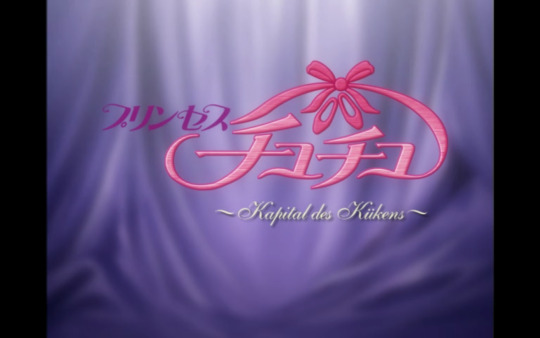
I watched the entire second half of the series in one day because I make good life choices
Previously on Princess Tutu Watch:
Okay I can get back to Tokyo Mew Mew now
+++++++++++++++++++
It was a lie, I could NOT
EPISODE, UH, FUCK……… 14! - The Raven
asdklsdhflhdl (google docs stop capitalizing my keysmashes) they’re bringing back “once upon a time there was a man who died”!!!!!! Honestly that might be one of my favorite lines in this whole show
Gotta love the sarcasm in “and they lived happily ever after”
The theme song…… it’s so good
Oh nooooooooooooooo
This scene is literally just the “I’ve got a headache that comes and goes” meme
Fakir you complete dork. You’re all dorks
“Princess Tutu and a crocodile are totally different” you tell ‘im, Mytho
Duck speaks so much more regularly than the other main characters? I mean, there’s Fakir over there like “Shall we go?” and Duck saying things like “I’m gonna be late!” and using “like” and “stuff”... I mean, I know this is the dub, but
Duck why are you using Fakir’s dumb excuses omg
Lilie is just the personification of my negative thoughts
BUT WHAT DID MYTHO TELL FAKIR
Awwwwwwww Duck, no
They’re in a terrifying Raven Dimension with like, ominous music and people wailing in the background and meanwhile Kraehe and the Raven are just having like, a normal conversation
Also, are the white feathers supposed to be like, what’s trapping the Raven there?
Duck please
Wait, Princess Tutu transformed on her own!
Episode 15 - Coppelia
Also, watching Fakir try and fail to stop Mytho from jumping out the window is Pain
Lilie you are a Strange Child
STEALTH DUCK RETURNS!
Oh no?? Fakir doesn’t want to get Mytho in trouble???
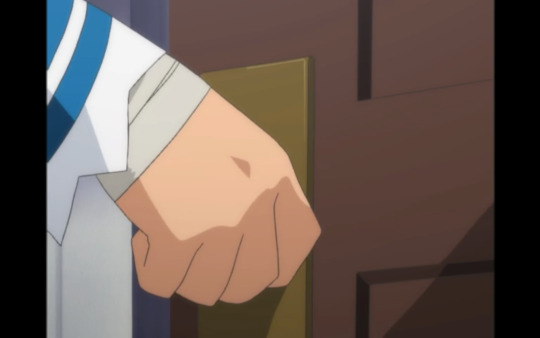
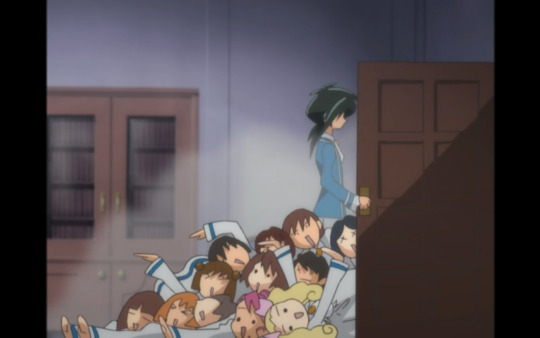
alsdfksfh the entire student population is Here For The Drama
Duck don’t yell in the library
Fakir just doesn’t make good decisions

Oooh that doesn’t look good
Sad Kraehe Theme Alert
You “just happened” to do a lot of things, Lilie
Omg Lilie “Want to just happen to go see?”
Rue just shows up to trash talk Fakir for a minute and then leaves
I say as if I’m not in So Much Pain
Yeah! Every single time Princess Tutu transformed in the first season, it was because Drosselmeyer said something, but now she’s transforming on her own!
Oh no Mytho
Also I like how Tutu doesn’t just flat-out say “you don’t actually love him” and instead is just like “how about you try doing things you enjoy with the guy you like instead of giving him Your Actual Heart”
Episode 16 - The Maiden’s Prayer
Wait is Angry Narrator back or did the other narrator just regain the heart shard of Withering Scorn?
Lilie isn’t even interested in the love triangle, she just wants Duck and Pike to fight
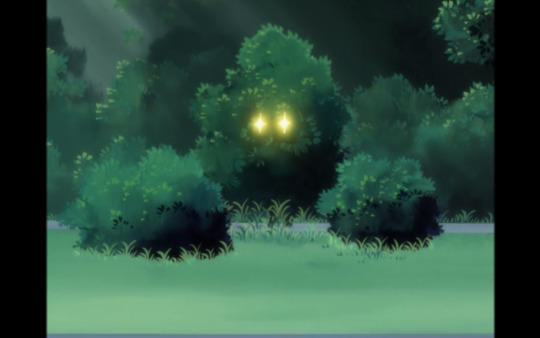
Is that Goatette
“So pretty…. What? Oh yeah I meant the flowers of course haha” Duck
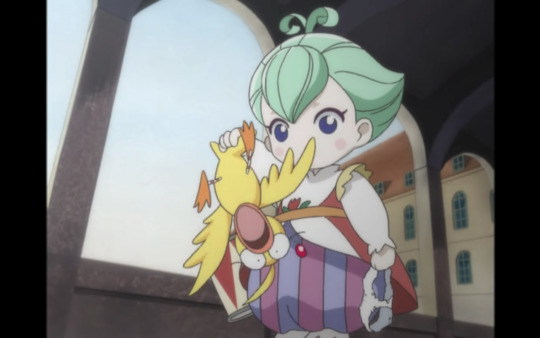
Such a serious child
“Love only me, hate everyone else”/“The prince who loves me and me alone”
This child is amazing
It was such a good decision to give Fakir a little sister. A good decision for everyone involved
aslfsdjhklgdlghdjghfdklkdkalh Kraehe told him that Duck would suffer if she knew what was happening with Mytho so Fakir isn’t going to tell herrrrrrrrrr Fakir please don’t internalize that!! You are breaking my heart sir
Oh my god it wasn’t Goatette it was the sloth
*The Can Can plays loudly over a sloth just kinda hangin out*
Episode 17 - Crime and Punishment
This may or may not have been the last episode I watched the first time I watched this show?
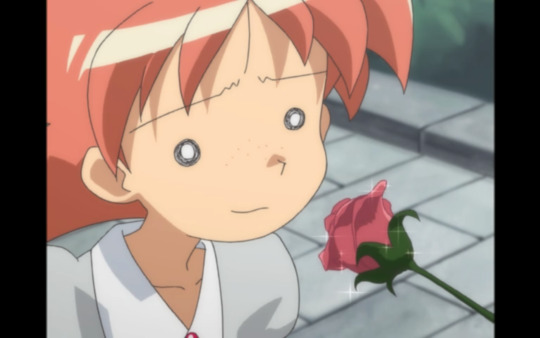
“Eyes of truth” huh?
This dumbass child
Femio, from the other side of the school grounds: “DID SOMEBODY SAY ‘PRINCE’????”
What the Fuck are you doing with your hands, kid
Why are you a cow
Honestly as over-the-top as Femio is he is also simultaneously the most realistic middle-schooler in this entire show
Oh my god he’s on probation
I’m sorry I’m just talking about Femio but he’s hilarious
Truly a Grade A Idiot
What is he even doing with his life
I’ve become Lilie
These characters have emotional crises over people saying the stupidest things and tbh I relate to that
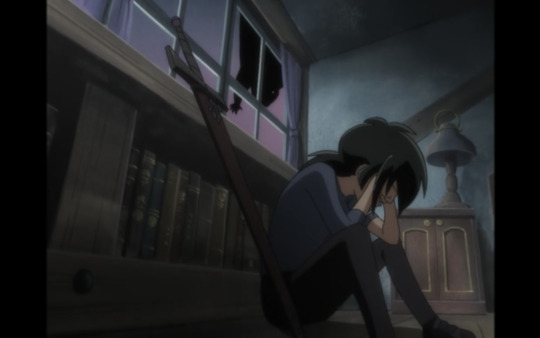
Oh dear!
The thing is, Femio would be really annoying in real life, but in a tv show he’s just amusing
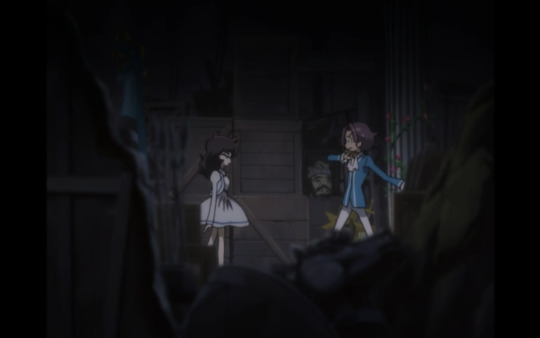
Rue’s FACE, she’s so done
I like how Duck can tell which building Rue’s in just by the amount of crows around it
Tbh all the students probably have noticed what’s going on, they just think it’s some kind of weird performance art thing. Wouldn’t be out of character for this school
Fakir and Uzura really are siblings, I love this
The best part about this episode is it’s this completely ridiculous person unintentionally getting in the middle of everybody’s emotional issues
“I feel kinda like something happened, and kinda like it didn’t” Duck you are absolutely correct
And of course the Aquarium is good once again
Episode 18 - The Wandering Knight
Incidentally, how old are these kiddos? We know Mytho is older than Duck, so Fakir and Rue probably are too?? But like, probably only by a year? Who even knows what their actual ages are
I mean, Duck is a duck so

It’s! The trees from the opening!
I don’t know if I’ve asked this before, but why does Fakir have a horse?
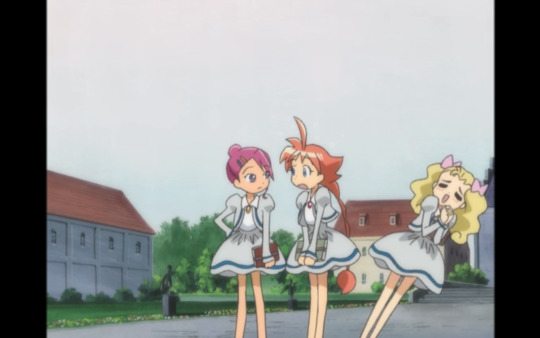
Oh my god Lilie
Can everybody STOP picking on Fakir for being afraid to die? He is 14, leave him alone
Ahiru is trying so hard to be helpful, give her a chance Fakir
Once again Rue shows up to get in a burn on Fakir and then leave
I swear every time the Aquarium plays in this show
Oh noooooooo Ruuuuueeeeeeee
Literally Protect All Of These Characters
Save These Children From Their Own Emotional Issues
FAKIR PLEASE
Pride is absolutely the worst feeling Mytho could get back right now?
“There’s something sinister going on that I’m not a part of!” And that really gets to you doesn’t it Dross. I bet it’s really… grinding your gears!!!
(why do I feel so proud of insulting a fictional character)
Episode 19 - A Midsummer Night’s Dream
Wow we really are starting this one off on a sinister note (it’s Drosselmeyer’s revenge on me for that pun)
Of course he can’t tell you, he doesn’t fuckin know what’s going on
Fakir please stop basing your entire identity around being a knight
Oh no, Mytho’s regained the heart shard of Basing Your Entire Identity Around Upholding A Role
I wonder if Hermia being tall is like, a meta Shakespeare joke, cause in the play Helena’s really tall and Hermia’s really short, but in every production I’ve seen it was the other way around
Rue stop projecting your insecurities onto your boyfriend
Ohhhhhhhh dear
Finally someone tells all the crows hanging around to shut up
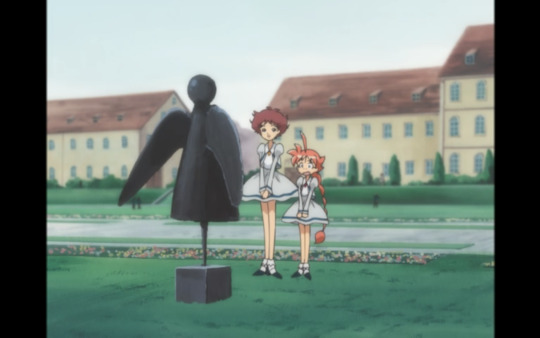
Oh my god she really is super tall
Or Ahiru’s just super short
I am learning so much about ballet mimes
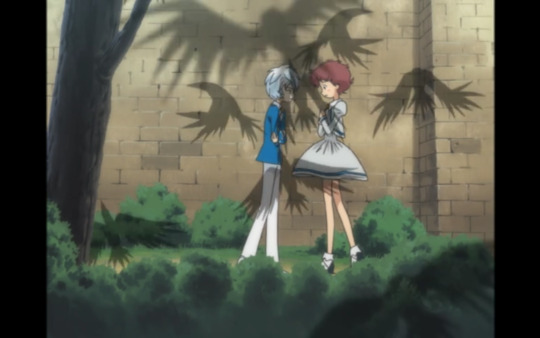
Cool bird shadows
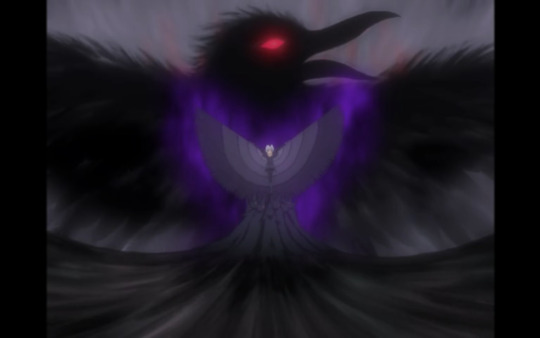
Whoa, different raven background. And the Raven isn’t speaking with him this time? What does it mean
On no, Tutu
Hahaha oh no
Aaahaha they’re the same
THEY EVEN DO THE SAME ARM-FLAILY THING
Episode 20 - The Forgotten Story
ALRIGHT, TIME FOR THE FAKIR’S SAD BACKSTORY EPISODE
Raetzel: *walks in*
Uzura: And where do you fit in the shipping chart, ma’am
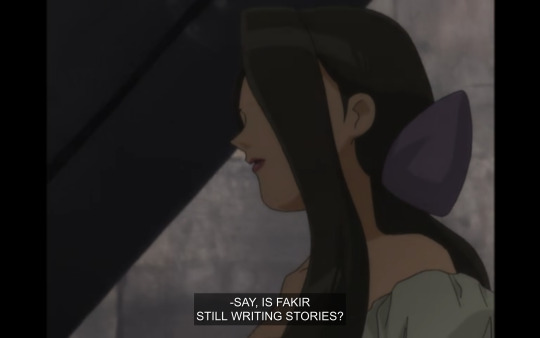
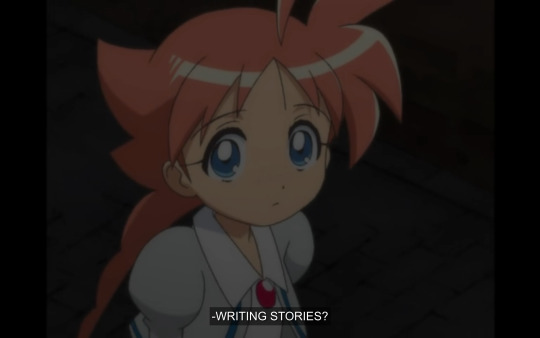
THIS is a High Quality Directatorial Decision
Oh no Duck. oh no she’s so earnest nooooo
It is just Extremely Wrong to see Mytho dancing to something besides Dance of the Sugar Plum Fairy
Mr. Cat can hear the word “wedding” from three floors up
Oh my GOD they put broken heart stickers on the window
I mean, I say they but we all know it was Lilie
Again, Duck knows exactly where shit’s going down just because that’s where all the crows are
Oh no!
Everybody needs to stop giving Fakir shit Right Now. Everybody needs to stop thinking it’s a bad thing that Fakir didn’t fucking Die, and that includes Fakir OKAY????
I’ve been thinking… Raven Mytho keeps saying things like “people only want love because they want to be loved” and I wonder… if that was sort of his experience as a prince. Or maybe I’m just getting this mixed up with Utena lol. But it does seem like a genuine issue he has as opposed to just something he says to manipulate people. Hm.
Episode 21 - The Spinners
Every time the narrator says “once upon a time there was a man who died” I Will Flip
Duck tries to lean nonchalantly against a door, it goes about how you’d expect
Duck that’s not how writing works (ughgfjdghskjkgf my pain)
AW NO
Oh no Duck is too relatable
UUAAAAAA TREE GHOST TREE GHOST
“Follow my every order and be prepared to die if you should fail” it’s almost like you WANT me to hate you. FAKIR DOESN’T NEED THIS
See Duck agrees with me
PETITION FOR PEOPLE TO LEAVE FAKIR THE FUCK ALONE THAT MEANS YOU TREE GHOST
Ohshit it’s that old guy from the bookshop???
Uzura is NOT “unrelated”, obviously she is Fakir’s baby sister
“I’m just watching again” oh no Duck
Autor what the Fresh Heck are you doing to Fakir
YOU ARE NOT FINE?????????
Honestly Fakir needs to get in touch with his emotions, not get sleep deprived and hallucinate in a field
This tree is saying things Edel said??? Was Edel made from the wood of this tree?????? Oh my god???????????
Anyway that was Intense
Listen, Raven Mytho has real issues and you can fight me on this
Ah, I see Dross is practicing the time-honored authorial tradition of “If the Story Isn’t Working, Hit It With a Wrench”
Episode 22 - Crown of Stone
But who’s going to protect Fakir huh? Answer me that, Duck
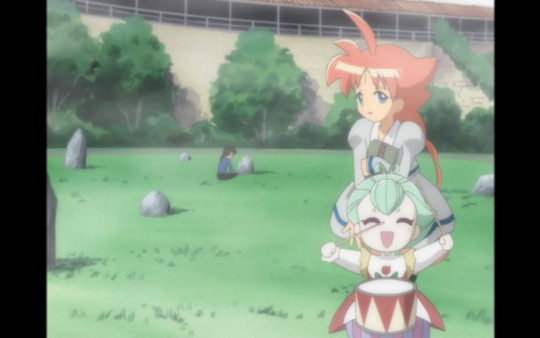
One big-ish happy familyyyyyyyyy
I needed this life advice tbh
Aaaaaah Uzura’s talking to Rue!
“Are you the Rue we’re worried about?” I love how she just included herself in that
Autor, I’m……. not sure you want the tree ghost cult to acknowledge you
Uhm, I’m pretty sure Autor doesn’t fit into the shipping chart and I think Uzura would agree with me
Ah fuck!!! Fakir turn around
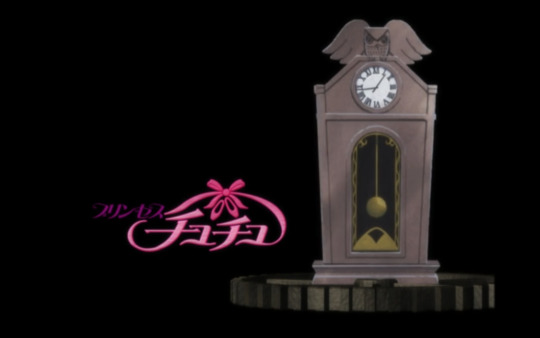
Wait it’s an owl on a grandfather clock?? Is that actually a thing? These watchnotes are coming full circle
“I want people to love me, but is it okay to just be loved?” yep, the prince is having issues
Autor, I’m pretty sure Ahiru is figuring all that out right now
And like, the Book Men totally know it too, so
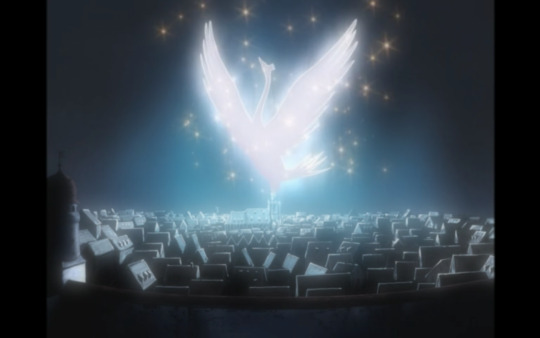
HOLY CRAP THIS SEQUENCE
AND THE MUSIC THE MUSIC IS PERFECT
SKLAFDJKVHFJK;JKLSdf;DSLKJFAKSDAKFJHFKLJJFGKLHGJFHSDLJ
I love this show
EPISODE 23 - Marionette
OH! OH! IT’S THE MUSIC EDEL ALWAYS PLAYED BUT SPED UP! That’s actually kinda creepy!
Anyway now I know why I’m so protective of Fakir, we’re both writers who can’t write anything
Oh noooooooooooo Rue
Oooooooooooh don’t like that
Ruuueeeeeeeeee please don’t stab your boyfriend we’ve been over this
Incidentally, hulu needs to quit it with these bogus commercial placements
Drosselmeyer: How dare you try to resolve your emotional problems!
Dross that’s called character development
Hahahaha joke’s on you Dross!
aaaaaaaaaAAAAAAAAAAAAAAAAAAAAAA
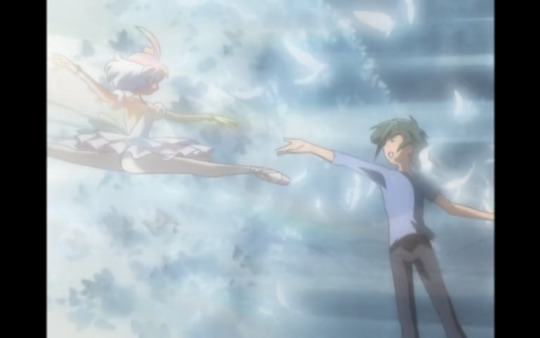
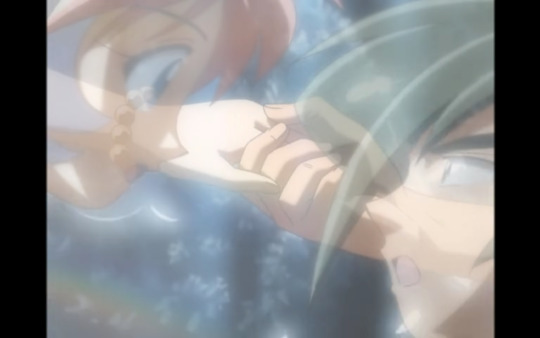
I! LOVE! THEM!
No of course your heart is lovey-dovey Uzura! Your heart is the lovey-dovey-est!!!
Incidentally, Autor is That Guy who says just because you haven’t finished/published anything you’re not a Real Writer. And he is Wrong
Episode 24 - The Prince and the Raven
Okay, just from this title I know I won’t be able to handle this
THIS ISN’T EVEN THE PENULTIMATE EPISODE
YOU ARE HITTING ME WITH ONCE UPON A TIME THERE WAS A MAN WHO DIED RIGHT OUT OF THE GATE I CANNOT BELIEVE
Okay but and then this story explains all of Raven Mytho’s emotional issues as well???
*sigh* Autor……. Fakir literally just told you his motivation is to protect people and you’re still going on about controlling the fates of all mankind… are you sure you’re not Drosselmeyer’s direct descendent?
Rue don’t go into the crow building
Honestly I’m still dying over the fact that you can tell where things are happening purely based on which building all the crows are at today
Tiny Rue is breaking my heart
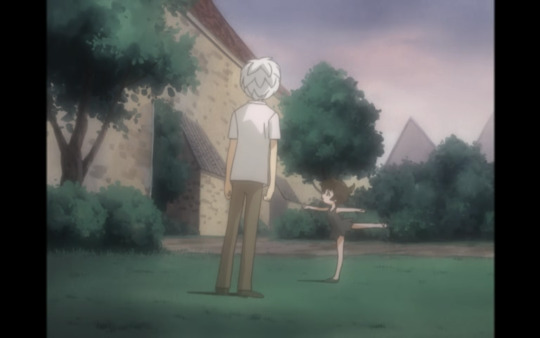
UUUUAAAAAAAAAAAAAA TINY RUE IS DOING BALLET
Omg Rue in the beginner’s class!
Oh noooo Uzura’s saaaaad
I KNOW I’ve heard this songgggggggg
THAT WAS A BIT OF THE FOSSILS FROM CARNIVAL OF THE ANIMALS???
Okayokayokay so it’s not Carnival of the Animals but DO YOU KNOW WHAT IT IS it’s another piece by Saint-Saens and DO YOU KNOW what that piece is called????? fuckin Danse Macabre!!!!! I am immediately filled with a sense of foreboding!!!
The music choices in this show are going to destroy me one day

HOLY CRAP????
I can’t believe so goddamn much happened in this episode???
Episode 25 - The Dying Swan
I’m not rrrrrrrrreadyyyyyyyyyyyyyyyyyyyy
Not even the narrator’s obvious disappointment in Drosselmeyer can give me solace
Oh my god so is the Drosselmeyer we know just a character in Dead Drosselmeyer’s story?
I think it’s a testament to this story’s power that I’m having so many emotions about it even though I know what’s going to happen? Like, some stories, reading the summary is pretty much the same as hearing the story, but Princess Tutu is not one of those stories
Like I just overcame my social anxiety to ask my roommate to be quieter, that’s how good this story is
Aaaaaagh Rue’s change from saying “you love me” to saying “I love you” my HEART
Oh shoot! Mytho’s angry! I thought one of the gate heart shards might be anger
Oh my god Autor literally no one cares what TEA Drosselmeyer drank look at Fakir he’s so done
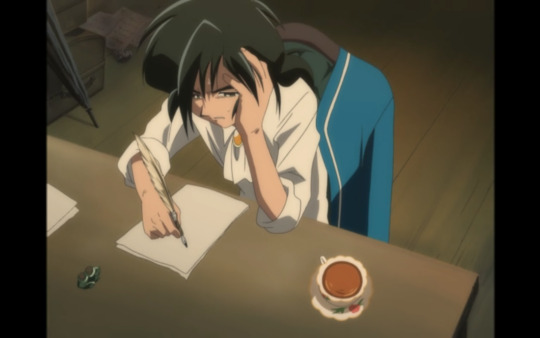
Aaaaaaaa ohno
EVISCERATE HIM FAKIR
Holyshitholyshitholyshit
Okay but see the lake is outside the city so Dross just took some random normal duck and plunked her down in his fairytale town and that’s why like, a cat teacher seems weird to her because she’s not from inside the story
OH NO THEY’RE PLAYING THE SWAN BUT THIS TIME IT’S RUE
rrrrrrrrrrrrrrrrr fuck OFFFFFF
Ohhhhhhhhhhhhh it’s the sword birds
excUSE you Dross, the knight has NOT “long been useless”
Episode 26 - Finale
I can’t believe after 9 years I’m finally going to finish watching this show
Okay it’s happening
It begins and ends with “once upon a time, there was a man who died”, the absolute most perfect first line in the history of first lines and you can fight me on this
Okay I’m already almost crying just from the theme song, like the Tchaikovsky fits perfectly into it? I’m gonna sing it
I’m just screaming???? They’re all in distress
BUT DUCK IS NOT GOING TO GIVE IN TO DISTRESS
RUE IS THE SWAN
DUCK DECIDES TO WRITE HER OWN STORY AND THE MUSIC FROM THE END OF THE THEME SONG STARTS PLAYING MY HEART
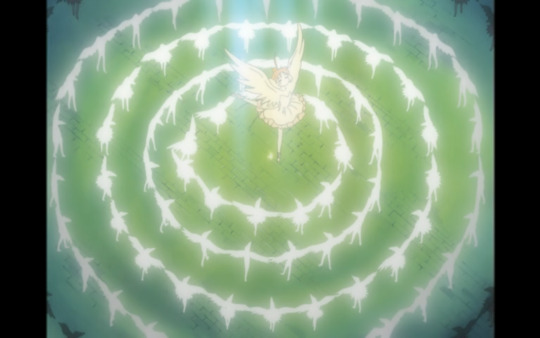
I’M ACTUALLY CRYING
IT’S ALL THE PEOPLE SHE HELPED
THEY ARE PLAYING THE THEME THAT PLAYS WHEN DUCK IS HAPPY
FUCKING -- AND YOU HIT ME WITH ONCE UPON A TIME THERE WAS A MAN WHO DIED NOW
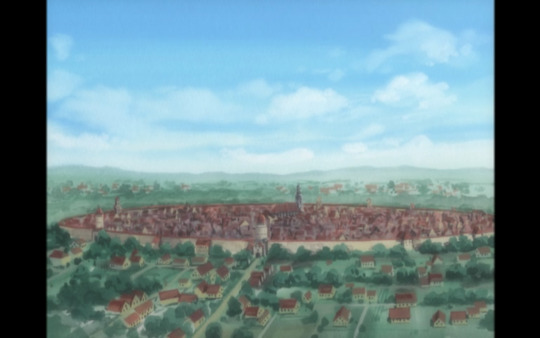
LOOK! LOOK THE SCENERY OUTSIDE THE TOWN FADES IN
I watched it.
2 notes
·
View notes
Text
Interview: Todd Smith on Earning $27M Over 23 Years & His Book Little Things Matter
I was about to sit down and do another deal structure outline, and I thought it would be best, given the time of year, to do one more article that addresses sort of that inner game that is required to have success in any business. Ill get back to deal structuring topics in the coming articles.
I had the fortune of interviewing a good friend recently on my podcast. Todd Smith from Sarasota, Florida has been an entrepreneur for over 35 years and has enjoyed extraordinary personal and professional success. He owned his first business at the age of 18, became one of the youngest real estate agents ever inducted into RE/MAXs Hall of Fame at the age of 28, and became an internationally recognized leader and trainer, earningget this$27 million over the last 23 years in that industry.
I met Todd at an industry meeting way back in the early 90s and weve stayed connected since. Todd has conducted more than a thousand training sessions and seminars for audiences around the world. Hes also developed numerous training manuals and audio-visual sales tools, teaching entrepreneurs how to achieve professional success and accomplish their personal goals.
His journey taught him that success comes from the compounding effect of doing the little things correctly and consistently. Hes the author, quite appropriately, of Little Things Matter. Its a resource for all those who place a priority on being the best they can. Its the first step in a comprehensive program designed to help people improve their business and their personal lives. Ill let you sit in on this interview as Todd shares some amazing nuggets. Remember, those you listen to, hang out with, and network with are extremely important and directly affect your income.
Advice on Success From Todd Smith
I wrote Little Things Matter because one of the things that my lifes journey has taught me is that its not the big things that separate the best of the best from the rest. Its the little things. Reflecting back on my real estate career, I got started at age 23 in my first year selling real estate, and that was 32 years ago. I made a quarter of a million dollars, and within four years, I was the second-highest producing real estate agent in the state of Illinois at age of 28. I did set goals, but it wasnt that I had a dream of being a top-producing real estate agent. It was all the little things that I did to stand out from the rest as an individual.
The little things were making sure that I arrived at all of my appointments five minutes earlythat I rang the doorbell at the exact time of the appointment, that I smiled and greeted the prospective seller, that I made equal eye contact with both the husband and the wife, that I showed an interest in the children, that I got down and took time to pet the cats and dogs, that I talked about things that were of interest to them. I sent hand-written thank you notes. I was always smiling and upbeat and pleasant and focused on them, and I never brought in my mobile phone. I focused on the people in front of me.
One of my biggest things was that I was disciplined. I pushed myself every day to do what most people arent willing to do. My discipline combined with my focus on making sure that I was doing every little thing allowed me to achieve that success. I remember listening to Anthony Robbins audio program Unlimited Power, which Id recommend for any of you reading this.
I made sure I was mirroring and modeling. If they talked slow, Id talk slow. If they talked faster, I talked faster. If they seemed like they just want to talk and build more of relationship, I talked and built more of a relationship. If they seemed like they wanted to get into talking business, I got into talking business. If they were leaning forward, I was leaning forward. I was always dressed in a suit and tie. My shoes were always shined. I was doing every little thing to build a relationship to connect with them, to have them like me and to have them respect me. As a result of that, my closing rate was 92% over my career. When I say my closing rate, I mean that when I met with sellers who were interviewing multiple other agents, I closed 92% of all my sales.
Even with that kind of success, I was saying to myself, OK, why was I successful? I didnt really understand it at the time. Even though I was intentional about the little things, I had no way of comparing myself to anybody. Then I moved into the direct sales career, as Chris indicated above, and I continued to implement that strategy of looking at every little thing I could do to be better. I believed in the global economic system, which is that income follows value.

If you want your income to grow, your value must grow first.
Very seldom in life does anybody get paid more than their value. If they are getting paid more than their value, one of two things happens. Either their income comes down to their value or their value goes up to their income. Just because youre choosing the real estate market and maybe flipping homes, or buying and selling on terms like Chris and his family to some capacityor youre considering doing thatunderstand that your success is still going to be determined by your value.
Youre just not going to say, OK, Im choosing to do something different with my life and Im going to go from making $20 an hour to $100 an hour. Life doesnt work that way. Certainly, the vehicle makes a big difference, but its who you become within that vehicle that makes the biggest difference. There are people who make big money in everything in life. Its all about choosing the right vehicle and pursuing that.
The point that I really focused on was continuing to grow myself and be the best that I could be. When I say the best that I could be, its not just the best that I could be in business. Its being the best person I can be. We cant just say, OK, were going to be a certain way in our business life and then be different in our personal life. Im striving to be the best husband I can be, to be the best father I can be, to be the best friend I can be, to be the best contributor in our community that I can be, and to be the best that I can be in my business. These things are based upon where my priorities are and how much time I allocate to each thing.
In business, we are a reflection of who we are as people. We built a brand for ourselves, and thats who we are. Our brand is not just heres our business brand, and our business brand is different than our personal brand. No, our brand is more than brand. I am somebody who throughout my career has striven for excellence at these little things. As a result of it, my businesses have sold over $2 billion and Ive learned that there are not very many people at the top. The reason is that most people arent willing to put in the effort to get to the top.
Oftentimes when youre successful, you dont know why at the time. As I began to analyze why I was successful, I eventually came to determine that it was because I strived for excellence at the little things. I felt I wanted to write a booknot so much to make money with the book (and I havent made money with the book). You dont write a book to make money; I know very few people who have made money writing books. For me, I wanted to write a book that taught what I believed was the key to success. I wanted to highlight the things that I felt would have the greatest application to the broadest audience of people.
Related: My One-Word Answer to: What Separates Those Who Succeed From Those Who Fail, Give Up, or Never Try?
It doesnt matter what profession youre in. It could be about professional footballits that wide receiver that can catch the ball with a defensive player in his face on a corner of the end zone and get his feet in bounds. Those are the guys who make it to the NFL. Its not the guy who can catch a football. Everybody can catch a football. Everybody can run. Everybody can run fast. There are a lot of people who can run fast and catch a football, but can you run fast and catch a football in the right circumstances, and handle pressure the right way?
Its not the big things, and I could give you analogy after analogy. Its not the big things that make the difference. Its you becoming the best at what you are doing. You become the best at what youre doing by honing in and refining and becoming the best at the little things. If you become great at all of the little things, the compounding effect of your intentional efforts allows you to become the best at what youre doing.
5 Steps Ive Used to Find to Success
I have trained hundreds of thousands of people, and Ill tell you that everybody wants a better life. Everybody wants a nicer car. Everybody wants a nicer house. Everybody wants more money. Everybody wants to travel the world. Everybody wants a better quality of life. Everybody wants to put together five deals in six months. It all boils down towhat are you willing to do toachieve that goal?
But youve got to set realistic goals. I have found throughout my experience in working with entrepreneurs all over the world that 90 percent of people set unrealistic goals. As I noted above, somebodys making $20 an hour, and just because they begin to do something else, they think theyre going to make $100 an hour. It doesnt work that way. The world doesnt work that way. Thats pie-in-the-sky thinking.
For anybody that wants to do something, its most important to begin by asking yourself, Why? Why do I want to do this? How bad is my desire? Because if you dont have the burning desire to be successful with anything youre going to pursue, youre not going to be successful. To be successful in life is not easy. I believe you can be great at anything, but you cant be great at everything. You have to pick what youre going to be focused onwhat youre going to be successful at.
1. Have a burning desire.
Youve got to have a strong, burning desire to be successfula desire so strong that it will push you every day to do what is required of you. If youre not willing to do what is required of you, then you might as well not even get started. This is how I coach everybody. Im just not the kind of person who plays games. I say, Hey, if youre not going to do whats required of you to be successful, then dont waste your life on this project; find something else thats important to you.
2. Build your knowledge.
How can you be successful at something for which you dont have knowledge? So you say, OK, how do I build my knowledge? How do I become as educated as I can be on this subject? Obviously, I admire all of you who are taking the time to read this, because it tells me that youre wanting to learn. Youre wanting to get better.
I talked to a guy recently who is at the absolute top of his game. He is unbelievably successful and listens to all of Chriss podcasts at 1.7 speed, just looking for a little nugget here and there. He says, Hey, 99 percent of the time that I spend listening to something, I may not be learning anything, but its that 1%, that one thing that I learned, that makes a difference. You have to continue to build your knowledge. You have to start building your knowledge, and then you have to continue building your knowledge.
3. Create a plan.
OK, so now I know what I want to be successful at. I built my knowledge and whats my plan going to be?
Your plan needs to be not just the big picture plan, but it needs to be a plan broken down into what you should do every day. A lot of people will set a goal to have six deals closed, but they dont build their knowledge. They dont have any plan. Theyre just saying, Im going to do it. Life doesnt work that way, and thats not the kind of thinking that comes out of anybodys mouth or mind whos ever been successful, because people who have been successful know that success takes time.
Success doesnt happen overnight. Yes, there are a few people who will put together six deals in six months. Nobody wouldve thought that I would have had the success that I did selling 68 homes in my first year in real estate and making a quarter of a million dollars. Yes, it can be done, but it can only be done if you build your knowledge and you have a plan.
4. Execute that plan.
Let me just say that most people dont have enough of a desire to push themselves, so most people fail on step one. Of those who do have the desire, very few people will go and say, OK, let me build my knowledge on something. Then you get down to a smaller number that will put together a plan to execute in order to achieve what they have set forth. When you get to step fourexecuting the planthis is where youre down to less than 2% of the people that have gone through the first few points and who are disciplined to execute that plan with excellence.
5. Refine.
Based upon what you have learned, youre refining, youre tracking all your numbers, youre looking at all your data, and youre determining: Where do I refine? How do I get better? What is not working? What parts should I focus on that are working? I determined very early on in my real estate career that I was going to focus on for sale by owners. That was my target market. I was very clear on my target market, and I determined I was going to be the best at targeting that market.
For each of you reading this, what is your target market? Youre going to try different things and youre going to say, Well, that didnt work. You dont want to say it after trying it one or two times. You have to have enough statistical data to say that something doesnt work. I called my first for sale by owner and they agreed to meet with me. What if my first 10 people had said, No, the reason were selling for sale by owner is because we hate real estate agents? What would that have done to my psyche? But overall, the numbers were what my numbers were regardless of 10 noes in a row or 10 yeses in a row.
Expectations begin with goal-setting, and goal-setting is dependent on ones true desire. You can set goals until youre blue in the face. If your desire is not strong enough, youre not going to do whats required of you to achieve those goals.
If somebody has got big goals and big expectations, then I hope its a person whos already been successful at something else in life. If this is the first thing youre hoping to be successful in at an extraordinary level, its highly unlikely that its going to happen, whether its this or something else. How many times have you met somebody who began to do something new and who was amazingly great at it right out of the gate? I cant even think of one person, and I know a lot of people. Thats why I say the best of the best are the best at the little things, and the people who are the top achievers are the people who are an inch wide and a mile deep in a single category.
As Malcolm Gladwell said in Tipping Point, its when youve got 10,000 hours in something. Thats because youve learned enough, youve refined enough, youve executed enough, and you now are dialed into exactly what it is that you should be doing to get the optimal level of conversions and success. Ive hung out with Chris, for example, and I know the level of discipline he has in all five of these areas; I know the hours he has invested since 1991 in real estate, and as a result, the level of success he and his family are experiencing is no surprise to me. Success leaves cluesfollow the path.

Build Your Influence: Be Likable and Respectable
Lets begin at the beginningthe foundation. John Maxwell says that leadership is one word: influence. If I were to ask, What describes influence? the answer would be respect. If you are respected, you have influence. When you have influence, everything in life goes better. Trust falls under respect. You can be trusted but not respected. But you cant be respected and not trusted. If youre not trusted, youre not respected either.
Whether youre leading people that work with you, work around you, or work alongside you, your degree of success with them is determined by how these people view you. If you want to have the ultimate success, you want to be the kind of person that people look at and think, I like him/I like her, and I respect him/I respect her. You want to build a brand that when people think of it, they say, I like you and I respect you.
If people can say, I like you and I respect you, they will want to do business with you. They will want to come to your birthday party. They will want to come to the talk youre giving about what youre doing. Your ultimate goal is to be a person of influence. If you want to be a person of influence where doors of opportunity open, where people look at you and say, I want to do business with you, where people refer others to you, you need to be somebody who is liked and respected.
When you look at being liked, its all the obvious things: smiling, having a pleasant personality, being positive and upbeat, not talking about negative things, not talking negatively about peoplebeing a source of positive, upbeat energy. Whether its over the phone and youre smiling while you talk, or whether youre meeting with somebody and youre smiling, and youre greeting them, and youre repeating their name, all of this is what makes you likable.
There are hundreds of factors that influence peoples respect for you. Are you on time? Do you get back to people when you say you will? Do you schedule firm appointments or do you leave them vague and open? What does your communication look like? Do you open your emails by saying, Hi Dean, I hope you had a great weekend? And then you dive into your subject in a new paragraph, and you have white space between your paragraphs, no big monster paragraphs, and everything is proofed and your communication is clear and concise. What do your text messages look like? How long does it take to respond to email? How long does it take you to respond to a phone call? How long does it take you to respond to a text? What is the tone in your communications?
These are the hundreds of things that I talk about in my blog and in my book. When youre meeting with somebody do you let them finish talking before you talk? Are you quick to interrupt? When youre listening to people, can they tell youre listening intently or do they think youre waiting to say something? When youre listening and looking at them, are you looking off to the side? All of these things influence peoples respect for you and influence whether they like you.
Related: Sorry, But Real Estate Investing is NOT Easy. Still, You Can Succeed if
If you want to be somebody that is highly successful in working with people, sellers, buyers, owners, you need to build a brand for yourself such that when people think of you and when they look at you they think, I like him. He is different. I like her. I like the way she accepted responsibility for that challenge rather than making an excuse for it. Or, Even though this was a challenging situation, I respected that he always was on top of his communication with me. I would love to do another deal with him, or I certainly would not hesitate to refer any of my investor friends to her because of the way she handled herself during this entire transaction.
Its not just about getting the deal put together, so to speak. Its about how you handle everything from front to finish, and whether they want to do more business with you, and have talked about you to their investment clubs, and talked about you to their friends. People hang around people like themselves. People who own apartment buildings hang around other people who own apartment buildings. People who own multiple pieces of residential real estate hang around other people who own multiple pieces of residential real estate.
If you want to be highly successful in this career over the long-term, these are the kinds of things you want to do. And by the way, long-term is how I would be looking at it. This is not a six-month or one-year thing. Dont waste your time if thats what youre thinking. You wont be successful in anything saying, Im going to do this for six months to a year. You have to say, Hey, this is what I want to do. I would love to build this into my lifestyle. I would love to be a guy or a gal that can put together deals and make an income and build a residual income through investment properties. Im going to become the best that I can be at this. What can I do to become the best?
You have to look at everything, including your social media posts. Who is going to refer you to some of these people? Maybe its the people who are following you on Facebook. Youre putting pictures of yourself up there partying. Let me tell you, that is not the image thats will cause people to respect you or even like you, so youve got to be thinking about everything. Your brand is your brand. You dont separate it.
Its not like, My brand in business is this and my brand in my personal life is that. No, your brand is your brand and people arent stupid. If you think theyre stupid, youre wrong. Theyre going to see it, and theyre going to determine whether or not youre somebody they want to do business with. Maybe somebody comes to them and says, Hey, do you know Eric Milander? Yeah, I know Eric. What do you think about Eric? Im thinking about doing a deal with him. Well, I wouldnt do a deal with Eric if my life depended on it, or Eric is somebody that I really like. Hes a great guy. I love his personality. He just seems to always show interest in me. Hes a good listener. Hes highly responsible. Everybody that I know that knows him thinks highly of him.
This is the brand that you want to build if you want to be successful in the world of busines. Especially if you want people to trust you with their money and their real estate, it is important to build this kind of a brand.
Plan, Prioritize, and ActDaily
Have a to-do list. I know what I need to do so the day is spent doing one thing. While I could have 20 other things on my to-do-list checked off in the same amount of time, those 20 things werent more important than the one thing I did. Going back to my five steps to success above, number three is you put together your plan. Your plan must be broken down into what youre supposed to do every day, and your plan needs to be arranged in priority sequence.
If youve got a plan, ask, What are the things that I need to work on first in this plan? What are the things I need to work on second? Then you need to make the decision, Im going to work on things in priority sequence, not Im going to work on things that I want to work on. The things that you dont want to do are the things that make you the most money. Thats how life works. Thats why I say of the thousand little things on my list, not one has a higher value to the market than discipline. Discipline is pushing yourself each day to do what you know you should do even when you dont feel like doing it.
If you want to be successfuland this is number one on my listyouve got to put first things first. You have to make sure youre spending your time doing exactly what you predetermined you should be doing with your time today to be productive. It might mean that youre sitting there with your phone in your ear and youre making outgoing calls because you determined right now the absolute most important thing for you to achieve your goals is to prospect. If thats the case, then you stick the phone to your ear and you prospect.
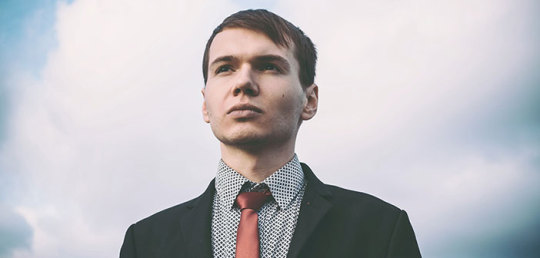
I remember when I was getting started in my various careers, where I would sit at the phone all day and prospect. I remember there were days I made up to 300 phone calls. Why? Because that was what I should do today. I didnt sit there and say, Oh, Im going to redesign my brochure or Im going to make my website look better or Im going to make my business card look better. Im going to think through my presentation again, or Im going to work on my phone script. No, it was me picking up the phone with my heart beating out of my chest, making phone call after phone call after phone call after phone call. It was refining my approach. When people didnt do business with me, I always asked them why and I learned a lot by asking them why.
Number two for being productive is working your to-do-list in priority sequence and pushing yourself to do the things that you know you should do without excuses and without justifying those excuses. You could say to yourself, Todays not a good day for me to make prospecting calls because its cloudy, or today is not a good day for me to make prospecting calls because Im a little tired. Im going to wait until tomorrow.
This is what everybody says. This is what 99.9% of the people do. They make excuses for not doing what they know they should do, whether its eating right, whether its exercising, whether its prospecting. Whatever it is they know they should do, most people dont do itand thats why most people arent successful. You have to have a plan. That plan needs to be broken down into what you should be doing each day. You need to be executing that plan each day with excellence. You need to be looking at everything youre doing each day and saying, How can I do what Im doing better? and then making adjustments. As Chris indicated in the introduction, its the compounding effect of these little things.
The first time youre focused on making equal eye contact with each person in the room, you may not be great at it, but if you work on it every time youre in a room of people, youre going to get a little bit better every time. Each time youre in a room like that youre saying to yourself, OK, Im going to be very deliberate in making sure everybody in this room feels included in the conversation. We all know we should remember names, but how many times do we remember a persons name? Its about being in the present. Its about being intentional, Im meeting somebody. I need to make sure I remember their name. Oh shoot, I forgot their name. Well, I have to get better tomorrow. Its about every day, pushing yourself to get better at the things that you know you should be doing.
TakeawaysThe little things are the small, meaningful actions that make your clients like and respect you.Income follows value: You have to create higher value before you can create higher income.The five steps to success are: (1) Have a burning desire, (2) Build your knowledge, (3) Create a plan, (4) Execute the plan, (5) Refine.Success comes after a lot of hours!Each day make a to-do list with the one important thing you need to do.Dont procrastinate; do it even if you dont like it. The things that you dont want to do are the things that make you the most money.

What little things do you do to differentiate yourself in your market?
Leave your questions and comments below!
https://www.biggerpockets.com/renewsblog/todd-smith-interview
0 notes
Text
Thinking in bets: How to make smarter decisions
I read a lot of books. Nearly every book has some nugget of wisdom I can take from it, but its rare indeed when I read a book and feel like Ive hit the mother lode. In 2018, Ive been fortunate enough to read two books that Ill be mining for years to come.
The first was Sapiens, the 2015 brief history of mankind from Yuval Noah Harari. I finished the second book yesterday: Thinking in Bets by Annie Duke. Duke is a professional poker player; Thinking in Bets is her attempt to take lessons from the world of poker and apply them to making smarter decisions in all aspects of life.
Thinking in bets starts with recognizing that there are exactly two things that determine how our lives turn out, Duke writes in the books introduction. Those two things? The quality of our decisions and luck. Learning to recognize the difference between the two is what thinking in bets is all about.
We have complete control over the quality of our decisions but we have little (or no) control over luck.
The Quality of Our Decisions
The first (and greatest) variable in how our lives turn out is the quality of our decisions.
People have a natural tendency to conflate the quality of a decision with the quality of its outcome. Theyre not the same thing. You can make a smart, rational choice but still get poor results. That doesnt mean you should have made a different choice; it simply means that other factors (such as luck) influenced the results.
Driving home drunk, for instance, is a poor decision. Just because you make arrive home without killing yourself or anyone else does not mean you made a good choice. It merely means you got a good result.
Duke gives an example from professional football. At the end of Super Bowl XLIX, the Seattle Seahawks were down by four points with 26 seconds left in the game. They had the ball with second down at the New England Patriots one-yard line. While everbody expected them to run the ball, they threw a pass. That pass was intercepted and the Seawhawks lost the game.
[embedded content]
Armchair quarterbacks around the world complained that this was the worst play-call in NFL history. (Ive linked to just four stories there. Theyre all brutal. You can find many more online.)
Duke argues, though, that the call was fine. In fact, she believes it was a smart call. It was a quality decision. There was only a 2% chance that the ball would be intercepted. There was a high percentage chance of winning the game with a touchdown. Most importantly, if the pass was incomplete, the Seahawks would have two more plays to try again. But if the team opted to run instead? Because they only had one time-out remaining, theyd only get one more chance to score if they failed.
The call wasnt bad. The result was bad. Theres a big difference between these two things, but humans generally fail to differentiate between actions and results. Duke says that poker players have a term for this logical fallacy: resulting. Resulting is assuming your decision-making is good or bad based on a small set of outcomes.
If you play your cards correctly but still lose a hand, youre resulting when you focus on the outcome instead of the quality of your decisions. You cannot control outcomes; you can only control your actions.
Note: As long-time readers know, I grew up Mormon. One of the songs we were taught as children has this terrific lyric: Do what is right, let the consequence follow. This has become something of a mantra for me as an adult. If I do the right thing whatever that might be in a given context then I cannot feel guilty if I get a poor result. Its my job to do my best. Beyond that, I cannot control what happens.
Luck and Incomplete Information
Why dont smart decisions always lead to good results? Because we dont have complete control over our lives and we dont have all of the information. Fundamentally, Duke says, results are influenced by luck. Randomness. Chance. Happenstance. She writes:
We are uncomfortable with the idea that luck plays a significant role in our lives. We recognize the existence of luck, but we resist the idea that, despite our best efforts, things might not work out the way we want. It feels better to imagine the world as an orderly place, where randomness does not wreak havoc and things are perfectly predictable.
Duke contrasts poker (and life) with chess. Chess is a game of complete information, a game of pure skill. Theres no luck involved. At all times, all of the pieces are available for both players to see. There are no dice rolls, nothing to randomize the game. As a result, the better player almost always wins. (When the better player doesnt win, its because of easily identifiable mistakes.) Because chess is a game of complete information, luck isnt a factor the outcome is only a matter of the quality of your decisions.
In poker, however, theres a lot you dont know. What cards do your opponents hold? What cards remain in the deck? How likely are your opponents to bluff? And so on. Experienced poker players learn to think in terms of odds. With this hand, I have a 74% chance of winning. I should fold. These cards only give me a 18% chance of coming out ahead.
Its because our decisions are made with incomplete information that life sometimes seems so difficult. You can do the right thing and still get poor results. You can opt not to drink on New Years Eve, for instance, but still get blindsided by somebody who did to drink and drive. You made a quality decision, but happenstance hit you upside the head anyhow.
Duke cites a scene from The Princess Bride as an example of how incomplete information affects the outcomes of our decisions. Criminal mastermind Vizzini and the Dread Pirate Roberts engage in a battle of wits:
[embedded content]
Vizzini pours two goblets of wine, then Roberts (actually our hero, Westley, in disguise) poisons one of them with deadly ioacane powder. The challenge is for Vizzini to choose the non-poisoned goblet. Vizzini cackles with glee when Roberts/Westley downs the poison but then falls dead after drinking his own goblet. It turns out both goblets had been poisoned, but Roberts had spent the previous few years building an immunity to iocane powder.
Vizzini made a quality decision based on the information he had, but he didnt have all of the information: both goblets were poisoned, and his opponent in this battle of wits was immune to the poison in the first place!
Thinking in Bets
Duke argues that in order to make smarter decisions, we have to embrace both the idea that theres a lot of luck in life and the reality that were swimming in uncertainty. Theres a stigma in our culture about appearing ignorant, about being unsure. Duke says that becoming comfortable with uncertainty and not knowing is a vital step to becoming a better decision-maker.
Admitting that we dont know has an undeservedly bad reputation, she writes.
What makes a decision great is not that it has a great outcome. A great decision is the result of a good process, and that process must include an attempt to accurately represent our own state of knowledge. That state of knowledge, in turn, is some variation of Im not sure.
Duke suggests that by moving to a framework of Im not sure, were far less likely to fall into the trap of black and white thinking, of false certainty. She cites Stuart Firesteins TED talk about the pursuit of ignorance:
[embedded content]
We should be pursuing high-quality ignorance.
Based on all of this, how then can we make smarter decisions? Duke says that we should stop thinking in terms of right and wrong. Few things are ever 0% or 100% likely to occur. Few people are ever 0% or 100% right about what they know or believe. Instead, we should think in bets.
Decisions are bets on the future, Duke writes, and they arent right or wrong based on whether they turn out well on any particular iteration. An unwanted decision doesnt make our decision wrong if we thought about the alternatives and probabilities in advance and allocated our resources accordingly.
Duke says that because pro poker players learn to think in terms of odds during their games, they transfer this way of thinking to everyday life. Job and relocation decisions are bets, she writes. Sales negotiations and contracts are bets. Buying a house is a bet. Ordering the chicken instead of the steak is a bet. Everything is a bet.
Just as each poker bet carries a different chance of success (based on the quality of the hand, the hands of the other players, etc.), so too the bets we make in life carry different chances of success. And our personal beliefs have (or should have) varying degrees of certainty. Duke wants readers to begin thinking about their beliefs and decisions in terms of probabilities rather than in terms of black and white.
Turns out I already do this to a small degree but usually for minor stuff. In fact, Ive done it several times in the past week.
A few days ago, I was listening to a Big Band station on Pandora. The song Green Eyes came on. I wonder what year this is from? I thought. I listened to the vocals, to the band, to the recording quality. I think theres an 80% chance this song is from 1939 give or take two years, I thought. I looked it up. The song was released in 1941. (I listen to a lot of older music, and I play this game often.)Because its been hot in Portland lately, folks in my neighborhood have all been taking early morning walks. We all tend to follow the same two-mile loop because its easy. Ive started playing a game when I pass somebody. Okay, the dog and I passed David Hedges at the llama farm. Where will we encounter him on the top side of the loop? Ill be its between Roys house and the bottom of the hill. Its fun for me to see how accurate my guesses are.
Duke believes that we should each do this sort of thing whenever we make a decision. Before we commit to a course of action, we should think about possible outcomes and how likely each of those outcomes is to occur.
Lets say youve only got $200 in the bank and its a week from payday. Should you join your friends for that weekend motorcycle trip? Or should you save that cash in case something goes wrong? Or, thinking farther in the future, what outcomes are you seeking in life? What decision will improve the odds of achieving those outcomes?
Or, imagine that youre trying to decide whether or not to buy a home. As you consider the possibilities, think about the probability that each possible future will occur. Dont simply cling to the outcome youre hoping for. Be objective. If the odds of success seem reasonable, then pursue your desired course of action. But if they dont, then pull the plug.
Duke writes:
In most of our decisions, we are not betting against another person. Rather, we are betting against all the future versions of ourselves that we are not choosing. We are constantly deciding among alternative futures: one where we go to the movies, one where we go bowling, one where we stay home. Or futures where we take a job in Des Moines, stay at our current job, or take some time away from work. Whenever we make a choice, we are betting on a potential future.
Every choice carries an opportunity cost. When you choose to save for the future, for instance, youre giving up pleasure in the present. Or, if you choose to spend in the present, youre giving up future financial freedom.
Final Thoughts
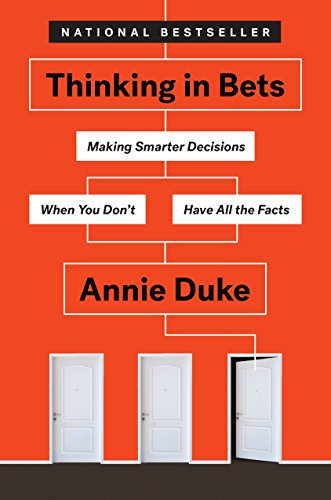
For a long time, Ive argued that the best books about money are often not about money at all. Thinking in Bets is another example of this. While Duke uses plenty of personal finance examples, the book itself is about self-improvement. Its not a money manual. Yet the info here could have a profound impact on your financial future.
Theres a lot more in this book that I havent covered in my review. (Ive really only touched on the first third of the material!) For me, the biggest takeaway comes early: Its vital to separate decision quality from results. The rest of the book explores how to improve the quality of your decisions.
Among the strategies Duke advocates are these:
Learn to examine your own beliefs. Be your own devils advocate. If youre certain about something, explore the opposing viewpoint. (If youre liberal, seek conservative opinions. If youre conservative, look for liberal voices.) Be skeptical of yourself and others.Build a network of trusted advisors, people who can give you feedback on your beliefs and decisions. But dont make these support groups homogeneous. Draw on people from a variety of backgrounds and belief systems. If you only associate with people who think the same way you do, you never give yourself a chance to grow, and youll never spot possible errors in your thinking. (This is like the current problems Facebook is facing with its deliberately-created echo chambers, which only serve to reinforce the way people think instead of challenging them.)When you make decisions, think of the future. Use barriers and pre-commitment to do the right thing automatically. Practice backcasting, a visualization method in which you define a desired outcome then figure out how you might get there.
The book is dense dense! with ideas and information. When I finished it, I wanted to go back and read it again. Plus, I wanted to plow through the nearly 200 other works that Duke lists in her bibliography. I feel like I could spend an entire year diving deeper into this book and its related reading.
But, as much as I wish it were, Thinking in Bets isnt perfect. A strong argument could be made that this material would work better as a TED talk or a 5000-word essay in The Atlantic (or on Get Rich Slowly!). The book is so packed with info that it sometimes loses its way. Theres also a lot of repetition too much repetition. Plus, it seems to lack a clear sense of organization.
These quibbles aside, Thinking in Bets has earned a permanent place on my bookshelf. If I ever get around to putting together a Get Rich Slowly library (a project Ive been planning for years!), this book will be in it. I got a lot out of it. And I bet you will too.
https://www.getrichslowly.org/smarter-decisions/
0 notes
Text
Thinking in bets: How to make smarter decisions
I read a lot of books. Nearly every book has some nugget of wisdom I can take from it, but its rare indeed when I read a book and feel like Ive hit the mother lode. In 2018, Ive been fortunate enough to read two books that Ill be mining for years to come.
The first was Sapiens, the 2015 brief history of mankind from Yuval Noah Harari. I finished the second book yesterday: Thinking in Bets by Annie Duke. Duke is a professional poker player; Thinking in Bets is her attempt to take lessons from the world of poker and apply them to making smarter decisions in all aspects of life.
Thinking in bets starts with recognizing that there are exactly two things that determine how our lives turn out, Duke writes in the books introduction. Those two things? The quality of our decisions and luck. Learning to recognize the difference between the two is what thinking in bets is all about.
We have complete control over the quality of our decisions but we have little (or no) control over luck.
The Quality of Our Decisions
The first (and greatest) variable in how our lives turn out is the quality of our decisions.
People have a natural tendency to conflate the quality of a decision with the quality of its outcome. Theyre not the same thing. You can make a smart, rational choice but still get poor results. That doesnt mean you should have made a different choice; it simply means that other factors (such as luck) influenced the results.
Driving home drunk, for instance, is a poor decision. Just because you make arrive home without killing yourself or anyone else does not mean you made a good choice. It merely means you got a good result.
Duke gives an example from professional football. At the end of Super Bowl XLIX, the Seattle Seahawks were down by four points with 26 seconds left in the game. They had the ball with second down at the New England Patriots one-yard line. While everbody expected them to run the ball, they threw a pass. That pass was intercepted and the Seawhawks lost the game.
[embedded content]
Armchair quarterbacks around the world complained that this was the worst play-call in NFL history. (Ive linked to just four stories there. Theyre all brutal. You can find many more online.)
Duke argues, though, that the call was fine. In fact, she believes it was a smart call. It was a quality decision. There was only a 2% chance that the ball would be intercepted. There was a high percentage chance of winning the game with a touchdown. Most importantly, if the pass was incomplete, the Seahawks would have two more plays to try again. But if the team opted to run instead? Because they only had one time-out remaining, theyd only get one more chance to score if they failed.
The call wasnt bad. The result was bad. Theres a big difference between these two things, but humans generally fail to differentiate between actions and results. Duke says that poker players have a term for this logical fallacy: resulting. Resulting is assuming your decision-making is good or bad based on a small set of outcomes.
If you play your cards correctly but still lose a hand, youre resulting when you focus on the outcome instead of the quality of your decisions. You cannot control outcomes; you can only control your actions.
Note: As long-time readers know, I grew up Mormon. One of the songs we were taught as children has this terrific lyric: Do what is right, let the consequence follow. This has become something of a mantra for me as an adult. If I do the right thing whatever that might be in a given context then I cannot feel guilty if I get a poor result. Its my job to do my best. Beyond that, I cannot control what happens.
Luck and Incomplete Information
Why dont smart decisions always lead to good results? Because we dont have complete control over our lives and we dont have all of the information. Fundamentally, Duke says, results are influenced by luck. Randomness. Chance. Happenstance. She writes:
We are uncomfortable with the idea that luck plays a significant role in our lives. We recognize the existence of luck, but we resist the idea that, despite our best efforts, things might not work out the way we want. It feels better to imagine the world as an orderly place, where randomness does not wreak havoc and things are perfectly predictable.
Duke contrasts poker (and life) with chess. Chess is a game of complete information, a game of pure skill. Theres no luck involved. At all times, all of the pieces are available for both players to see. There are no dice rolls, nothing to randomize the game. As a result, the better player almost always wins. (When the better player doesnt win, its because of easily identifiable mistakes.) Because chess is a game of complete information, luck isnt a factor the outcome is only a matter of the quality of your decisions.
In poker, however, theres a lot you dont know. What cards do your opponents hold? What cards remain in the deck? How likely are your opponents to bluff? And so on. Experienced poker players learn to think in terms of odds. With this hand, I have a 74% chance of winning. I should fold. These cards only give me a 18% chance of coming out ahead.
Its because our decisions are made with incomplete information that life sometimes seems so difficult. You can do the right thing and still get poor results. You can opt not to drink on New Years Eve, for instance, but still get blindsided by somebody who did to drink and drive. You made a quality decision, but happenstance hit you upside the head anyhow.
Duke cites a scene from The Princess Bride as an example of how incomplete information affects the outcomes of our decisions. Criminal mastermind Vizzini and the Dread Pirate Roberts engage in a battle of wits:
[embedded content]
Vizzini pours two goblets of wine, then Roberts (actually our hero, Westley, in disguise) poisons one of them with deadly ioacane powder. The challenge is for Vizzini to choose the non-poisoned goblet. Vizzini cackles with glee when Roberts/Westley downs the poison but then falls dead after drinking his own goblet. It turns out both goblets had been poisoned, but Roberts had spent the previous few years building an immunity to iocane powder.
Vizzini made a quality decision based on the information he had, but he didnt have all of the information: both goblets were poisoned, and his opponent in this battle of wits was immune to the poison in the first place!
Thinking in Bets
Duke argues that in order to make smarter decisions, we have to embrace both the idea that theres a lot of luck in life and the reality that were swimming in uncertainty. Theres a stigma in our culture about appearing ignorant, about being unsure. Duke says that becoming comfortable with uncertainty and not knowing is a vital step to becoming a better decision-maker.
Admitting that we dont know has an undeservedly bad reputation, she writes.
What makes a decision great is not that it has a great outcome. A great decision is the result of a good process, and that process must include an attempt to accurately represent our own state of knowledge. That state of knowledge, in turn, is some variation of Im not sure.
Duke suggests that by moving to a framework of Im not sure, were far less likely to fall into the trap of black and white thinking, of false certainty. She cites Stuart Firesteins TED talk about the pursuit of ignorance:
[embedded content]
We should be pursuing high-quality ignorance.
Based on all of this, how then can we make smarter decisions? Duke says that we should stop thinking in terms of right and wrong. Few things are ever 0% or 100% likely to occur. Few people are ever 0% or 100% right about what they know or believe. Instead, we should think in bets.
Decisions are bets on the future, Duke writes, and they arent right or wrong based on whether they turn out well on any particular iteration. An unwanted decision doesnt make our decision wrong if we thought about the alternatives and probabilities in advance and allocated our resources accordingly.
Duke says that because pro poker players learn to think in terms of odds during their games, they transfer this way of thinking to everyday life. Job and relocation decisions are bets, she writes. Sales negotiations and contracts are bets. Buying a house is a bet. Ordering the chicken instead of the steak is a bet. Everything is a bet.
Just as each poker bet carries a different chance of success (based on the quality of the hand, the hands of the other players, etc.), so too the bets we make in life carry different chances of success. And our personal beliefs have (or should have) varying degrees of certainty. Duke wants readers to begin thinking about their beliefs and decisions in terms of probabilities rather than in terms of black and white.
Turns out I already do this to a small degree but usually for minor stuff. In fact, Ive done it several times in the past week.
A few days ago, I was listening to a Big Band station on Pandora. The song Green Eyes came on. I wonder what year this is from? I thought. I listened to the vocals, to the band, to the recording quality. I think theres an 80% chance this song is from 1939 give or take two years, I thought. I looked it up. The song was released in 1941. (I listen to a lot of older music, and I play this game often.)Because its been hot in Portland lately, folks in my neighborhood have all been taking early morning walks. We all tend to follow the same two-mile loop because its easy. Ive started playing a game when I pass somebody. Okay, the dog and I passed David Hedges at the llama farm. Where will we encounter him on the top side of the loop? Ill be its between Roys house and the bottom of the hill. Its fun for me to see how accurate my guesses are.
Duke believes that we should each do this sort of thing whenever we make a decision. Before we commit to a course of action, we should think about possible outcomes and how likely each of those outcomes is to occur.
Lets say youve only got $200 in the bank and its a week from payday. Should you join your friends for that weekend motorcycle trip? Or should you save that cash in case something goes wrong? Or, thinking farther in the future, what outcomes are you seeking in life? What decision will improve the odds of achieving those outcomes?
Or, imagine that youre trying to decide whether or not to buy a home. As you consider the possibilities, think about the probability that each possible future will occur. Dont simply cling to the outcome youre hoping for. Be objective. If the odds of success seem reasonable, then pursue your desired course of action. But if they dont, then pull the plug.
Duke writes:
In most of our decisions, we are not betting against another person. Rather, we are betting against all the future versions of ourselves that we are not choosing. We are constantly deciding among alternative futures: one where we go to the movies, one where we go bowling, one where we stay home. Or futures where we take a job in Des Moines, stay at our current job, or take some time away from work. Whenever we make a choice, we are betting on a potential future.
Every choice carries an opportunity cost. When you choose to save for the future, for instance, youre giving up pleasure in the present. Or, if you choose to spend in the present, youre giving up future financial freedom.
Final Thoughts
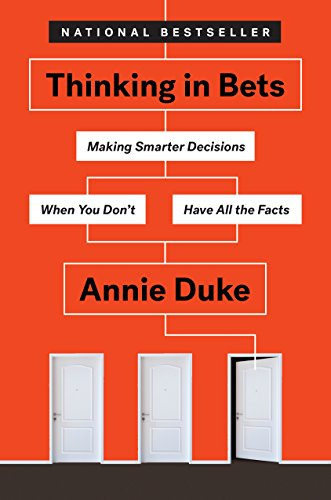
For a long time, Ive argued that the best books about money are often not about money at all. Thinking in Bets is another example of this. While Duke uses plenty of personal finance examples, the book itself is about self-improvement. Its not a money manual. Yet the info here could have a profound impact on your financial future.
Theres a lot more in this book that I havent covered in my review. (Ive really only touched on the first third of the material!) For me, the biggest takeaway comes early: Its vital to separate decision quality from results. The rest of the book explores how to improve the quality of your decisions.
Among the strategies Duke advocates are these:
Learn to examine your own beliefs. Be your own devils advocate. If youre certain about something, explore the opposing viewpoint. (If youre liberal, seek conservative opinions. If youre conservative, look for liberal voices.) Be skeptical of yourself and others.Build a network of trusted advisors, people who can give you feedback on your beliefs and decisions. But dont make these support groups homogeneous. Draw on people from a variety of backgrounds and belief systems. If you only associate with people who think the same way you do, you never give yourself a chance to grow, and youll never spot possible errors in your thinking. (This is like the current problems Facebook is facing with its deliberately-created echo chambers, which only serve to reinforce the way people think instead of challenging them.)When you make decisions, think of the future. Use barriers and pre-commitment to do the right thing automatically. Practice backcasting, a visualization method in which you define a desired outcome then figure out how you might get there.
The book is dense dense! with ideas and information. When I finished it, I wanted to go back and read it again. Plus, I wanted to plow through the nearly 200 other works that Duke lists in her bibliography. I feel like I could spend an entire year diving deeper into this book and its related reading.
But, as much as I wish it were, Thinking in Bets isnt perfect. A strong argument could be made that this material would work better as a TED talk or a 5000-word essay in The Atlantic (or on Get Rich Slowly!). The book is so packed with info that it sometimes loses its way. Theres also a lot of repetition too much repetition. Plus, it seems to lack a clear sense of organization.
These quibbles aside, Thinking in Bets has earned a permanent place on my bookshelf. If I ever get around to putting together a Get Rich Slowly library (a project Ive been planning for years!), this book will be in it. I got a lot out of it. And I bet you will too.
https://www.getrichslowly.org/smarter-decisions/
0 notes